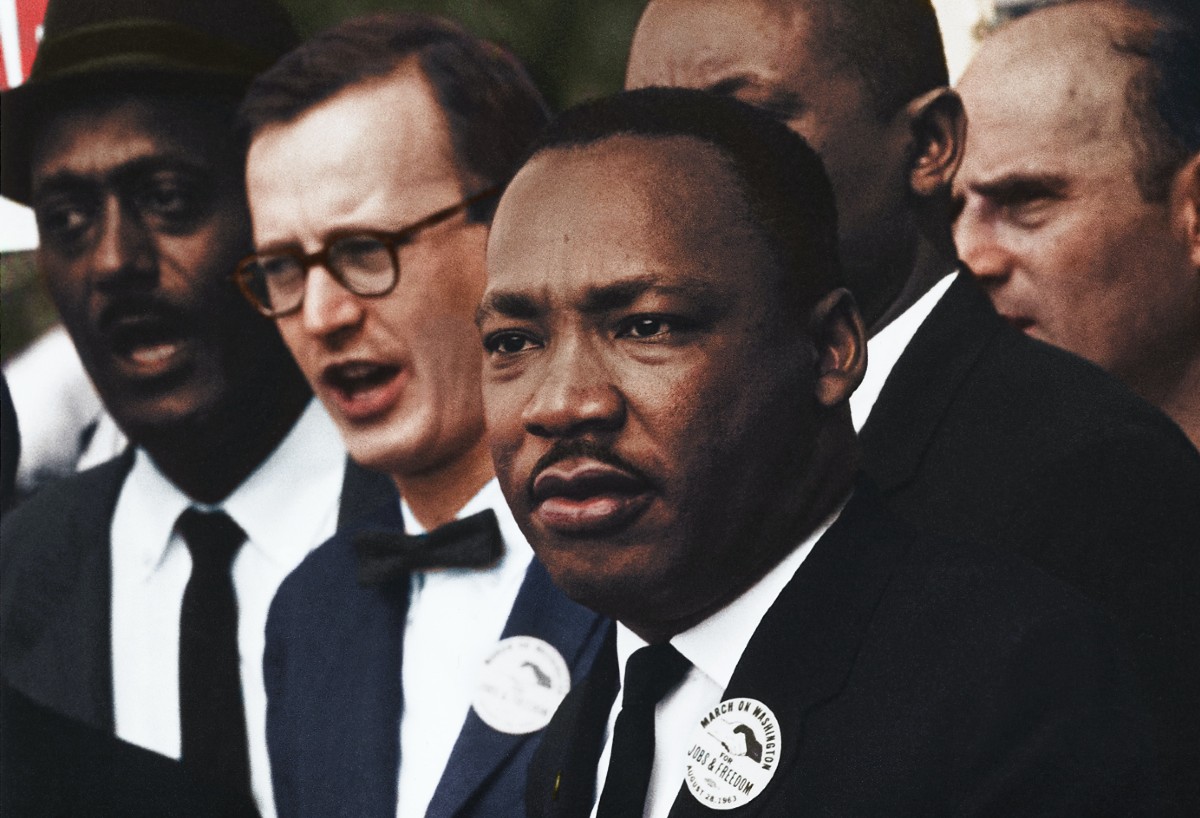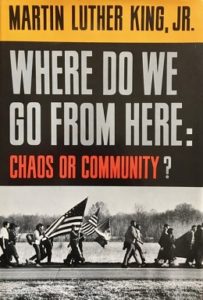
King during the 1963 March on Washington. Via Unsplash.
By John L.S. Simpkins, republished with permission | In what would be his final speech as the leader of the Southern Christian Leadership Conference, Martin Luther King Jr., spoke of sin, addiction and redemption. After rattling off a litany of the preceding year’s programmatic achievements, including effective economic boycotts led by a young Jesse Jackson and what would come to be known as Rainbow PUSH, King shifted gears.
“And if you will let me be a preacher just a little bit,” King importuned as he shifted from organization man to man of the cloth. He then told the story of Nicodemus, the Pharisee who asks Jesus how he could be saved through a dialogue about the meaning of being “born again” or, as the Greek translation would read, “born from above.”
“Jesus didn’t get bogged down on the kind of isolated approach of what you shouldn’t do,” King explained. “Jesus didn’t say, ‘Now Nicodemus, you must stop lying.’ He didn’t say, ‘Nicodemus, you must stop drinking liquor if you are doing that excessively.’ He said something altogether different, because Jesus realized something basic: that if a man will lie, he will steal. And if a man will steal, he will kill. So instead of just getting bogged down on one thing, Jesus looked at him and said, ‘Nicodemus you must be born again.’”
King continued, “In other words, ‘Your whole structure must be changed.’ A nation that will keep people in slavery for 244 years will ‘thingify’ them and make them things. And therefore, they will exploit them and poor people generally economically. And a nation that will exploit economically will have to have foreign investments and everything else [to maintain that exploitation], and it will have to use its military might to protect them. All of these problems are tied together.”
King concluded the story of Nicodemus by telling those assembled, “What I’m saying is we must go from this convention and say, ‘America, you must be born again!’” And thus King answered the question that framed those remarks delivered almost 55 years ago: Where do we go from here?
 In a subsequent book bearing the same title as the question raised in his speech, King would propose the two options of “chaos or community.” Either seems a real possibility. In some ways, this is no ordinary time. The well-founded fears of coup d’etat, expressed in a recent opinion piece by the last 10 leaders of the Pentagon, were on display for all the world to see as terrorists stormed the Capitol.
In a subsequent book bearing the same title as the question raised in his speech, King would propose the two options of “chaos or community.” Either seems a real possibility. In some ways, this is no ordinary time. The well-founded fears of coup d’etat, expressed in a recent opinion piece by the last 10 leaders of the Pentagon, were on display for all the world to see as terrorists stormed the Capitol.
In that action, we demonstrated behavior that is all too familiar to some. White rage and privilege were on full and equal display, as frightened, threatened radicals were granted easy access to the heart of America’s legislative branch. A brazen act, certainly, but also yet another bender. Drunk on racism, we’ve fallen off the wagon yet again. The latest intervention has failed to hold.
As King said, our “whole structure must be changed.” Specifically, the latest iteration of race-based radicalization must finally and completely be excised from American political, economic, and social life. But addictions can be hard to shake, and the United States has been hooked for centuries. King’s exhortation for rebirth rang as but one of the multiple attempts at intervention to cure our country’s addiction to race. Douglass, Lincoln, and FDR before him, among others, called attention to our inability to curb our appetite for all the benefits to be derived from a system of “thingification.”
From the slave-labor based business venture that was the Carolinas to denial of WWII-era government contracts to continued redlining and police-involved killings, our national addiction to race and racism is deep and profound. It clouds our collective judgment in the organization of our economy, the formulation of policy, and even what constitutes “disruption” through entrepreneurialism and innovation. But rather than admire the problem, it’s worth focusing on Dr. King’s prescription.
Removing race from the equation will not cure all of America’s ills, to be sure. We will continue to debate the duties owed to each other, and the proper role of government at all levels, and how to allocate scarce resources. We will have removed the intoxicant of race, however, which has clouded our judgment and impaired our vision for 400 years. Chaos has never been our collective aspiration. Sobriety brings clarity, and it is only through a collective rebirth that we will gain the clarity to even embark upon the journey to realizing that beloved goal of community. There are miles to go beyond that yet-to-come awakening. America, you must be born again. Enough. Really.
John L.S. Simpkins was a professor at the Charleston School of Law before he joined the Obama administration. He now is president and CEO of MDC, Inc., a regional think tank that produces an annual State of the South analysis. This article originally was published at Medium.com and is republished with the author’s permission.
- Have a comment? Send to: feedback@charlestoncurrents.com




 We Can Do Better, South Carolina!
We Can Do Better, South Carolina!
























